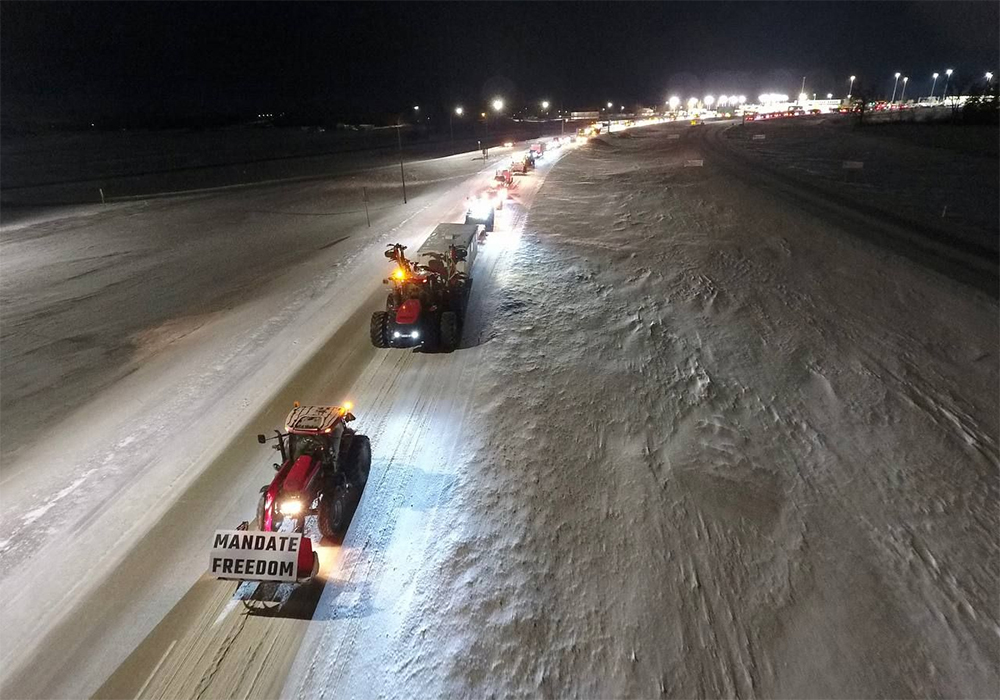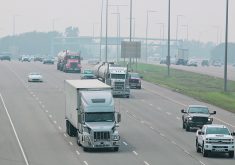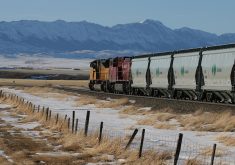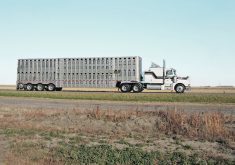UPDATED – February 10 – 1520 CST – Reaction from Manitoba Pork added – A protest that began early this morning has shut down the main border crossing between Manitoba and North Dakota.
At around 9 a.m., the RCMP alerted Manitobans that traffic was not moving through the Emerson border crossing, which connects Highway 75 to Interstate 29 in North Dakota.
“A demonstration involving a large number of vehicles and farm equipment is blocking the Emerson Port of Entry. No traffic is getting through either northbound or southbound. The Port of Entry is shut down. Please avoid the area,” the RMCP said in a tweet.
Read Also

Using artificial intelligence in agriculture starts with the right data
Good data is critical as the agriculture sector increasingly adopts new AI technology to drive efficiency, sustainability and trust across all levels of the value chain.
The border station is the primary crossing for hundreds of Manitoba truckers, who transport goods, livestock, grain and other commodities into the United States.
A trucker hauling grain told CJOB radio around 10:30 a.m. that he had been stuck on the Manitoba side of the border for more than three hours.
He said at least a mile of vehicles were lined up behind his truck.
Based on media reports, trucks, tractors and other pieces of farm equipment were parked on the highway at the border crossing, blocking traffic in both directions.
The crossing is one of two ports of entry that handle commercial truck traffic in Manitoba. The other is south of Boissevain on Highway 10.
The blockade at Emerson is part of a larger border protest that has seen Canadians completely obstruct or partially block the flow of traffic at border crossings in Ontario and Alberta. The protesters are calling for an end to all COVID-19 mandates in Canada, including mask requirements and vaccine passports.
Keystone Agricultural Producers did not comment directly on the protest. In an email, a KAP spokesperson said such transportation issues are problematic.
“Farmers rely on a highly efficient transportation system to deliver products to market and receive important shipments,” KAP said in a Jan. 19 statement.
“Any challenges to an already strained system can seriously affect the security of Canada’s food supply, and the economic competitiveness of individual farm operations. The Government of Canada must ensure that farmers have timely access to domestic and international markets.”
A significant number of weanlings born in Manitoba are shipped to hog barns in the U.S. for finishing. The Emerson port of entry is a crucial crossing for truckers hauling those pigs.
“In response to the ongoing delays at Canada-U.S. border crossings, Manitoba Pork is actively working with the provincial government, including Manitoba’s Office of the Chief Veterinarian, as well as swine transporters and other key stakeholders to understand and resolve any issues that may lead to pig export delays and animal welfare issues,” Manitoba Pork said in an email.
“Livestock, including hogs, need to be able to move unimpeded through the border to ensure there are no issues with animal welfare. There are also concerns regarding feed, including soybean meal, being held up at the border as well. We encourage producers to be in contact with their commercial transporters about possible shipping options for pigs.”
As of 3:00 p.m. Thursday, some vehicles were moving through the Emerson crossing, including trucks with livestock. But other trucks and travelers were facing long delays.
Contact robert.arnason@producer.com
















